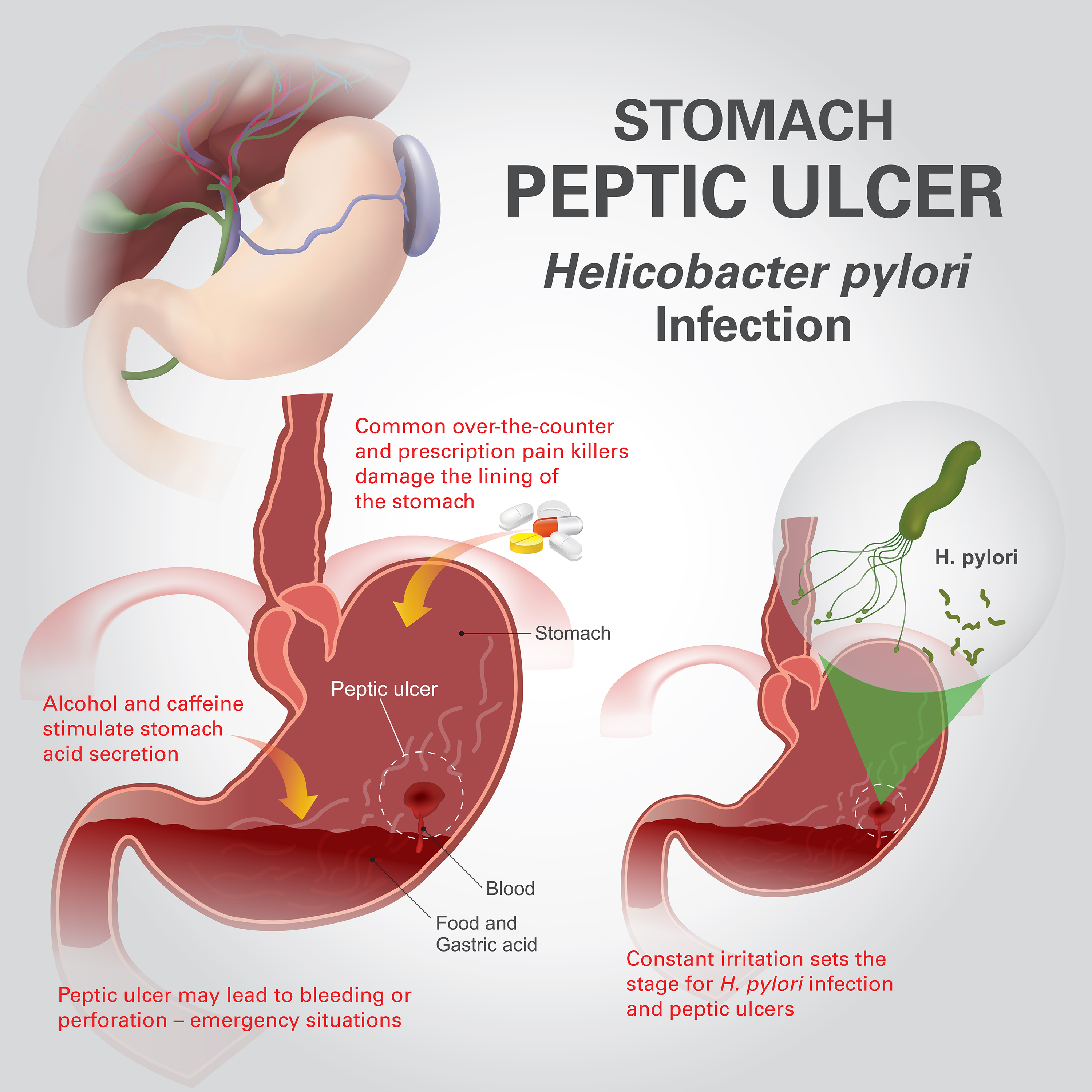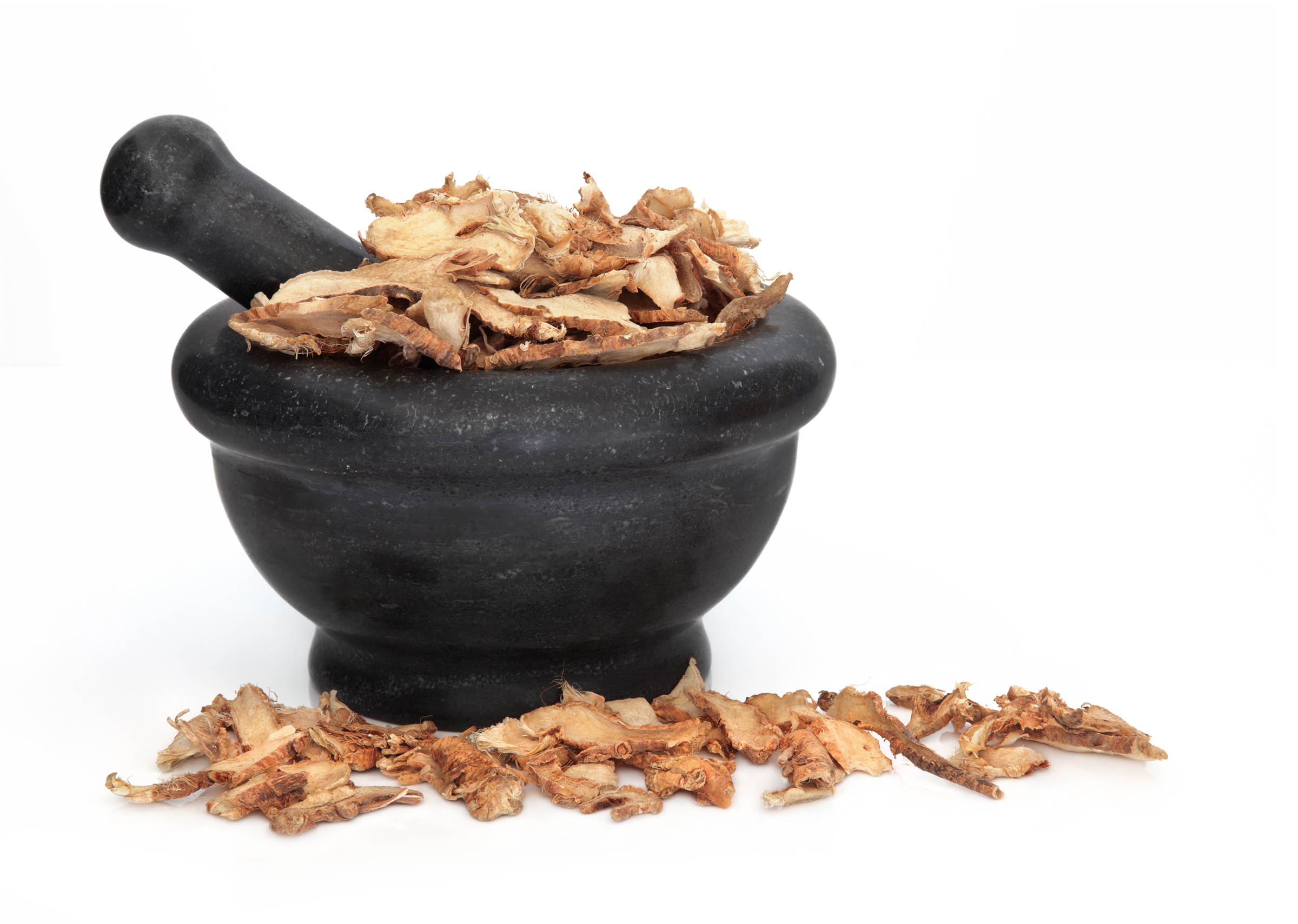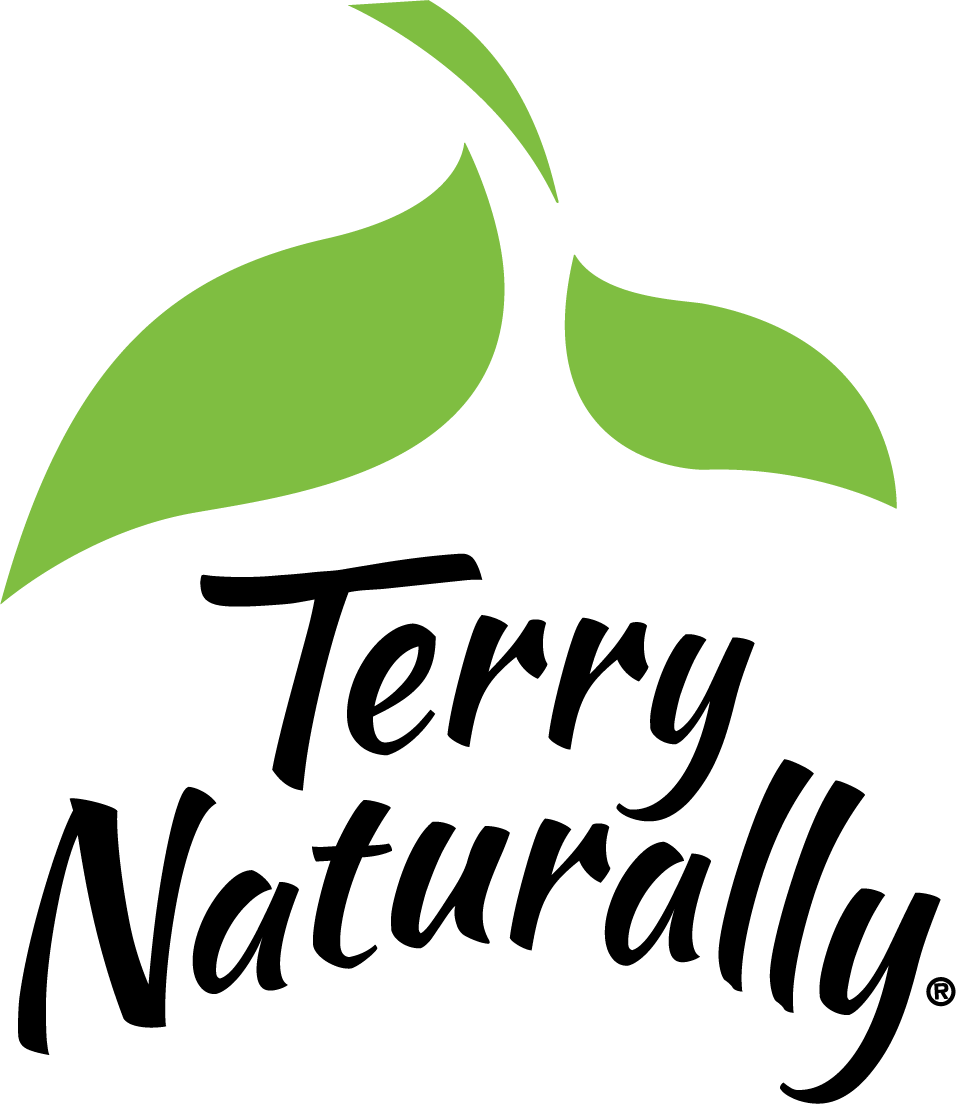Digestive health has long been considered the key to overall good health. Any stomach disorder – whether it’s indigestion, ulcers, bloating, IBS, or heartburn – takes a toll on how we get through the day, and affects our whole body health and perspective in countless ways. Unfortunately, digestive disorders are very common. In fact, according to the Centers for Disease Control and Prevention (CDC), peptic ulcers affect at least six million Americans every year and the bacterium Helicobacter pylori, is a major contributor.

What Causes a Peptic Ulcer?
When your digestive tract is eroded in the stomach or small intestine, you may experience some very painful symptoms: nausea, burning pain in your stomach, or heartburn.
Two of the most common causes of ulcers are the use of over-the-counter pain relievers like aspirin and ibuprofen, and H. pylori, a bacteria that would otherwise protect the lining of the stomach and small intestine. It’s very likely that the combination of the two causes, possibly in conjunction with inflammation and oxidative damage, are responsible.
If you are prone to ulcers, or have developed an ulcer, you have to treat it. Otherwise it can lead to bleeding, obstruction in the digestive tract, or internal infections.
Digestive disorders are difficult to treat because conventional medications make them worse by altering the body’s chemistry in a way that either leads to insufficient stomach acid for proper nutrient breakdown or otherwise causes significant side effects.
If you’ve been struggling with any stomach or intestinal disorder, it’s time to start healing. And deglycyrrhizinated licorice, better known as DGL, can make that happen.
DGL Rescues Your Digestive Tract
DGL as a medicinal ingredient begins as the root of the licorice (Glycyrrhiza glabra) plant. The roots are edible in their raw state, but are often dried before use by herbalists for infusions. As a supplemental ingredient for digestion, the glycyrrhizinic acid is removed from the licorice extract, because there is a concern that this compound could raise blood pressure levels if the extract was used at high levels and for an extended time. So “deglycyrrhizinated licorice,” naturally became commonly known as “DGL.”
DGL is a great first response to digestive issues, because it helps soothe and calm them. DGL does this by reducing inflammation and protecting against bacteria and oxidative damage.
This natural compound inhibits Helicobacter pylori, a bacterium that eats away at the protective mucosal lining of the stomach. DGL also inhibits stomach lining damage caused by aspirin and other NSAIDs (non-steroidal anti-inflammatory drugs) like ibuprofen. And its anti-inflammatory abilities can help prevent the symptoms of IBS, Crohn’s, and colitis as well.
Even though DGL has been available for years, and in many forms, there is a clinically tested DGL that I prefer.
 Licorice root is dried and chopped when it is used in herbal preparations.
Licorice root is dried and chopped when it is used in herbal preparations.
For clinical use, it is deglycyrrhizinated – standardized to remove glycyrrhizinic acid
and maintain a consistent level of glabridin and beneficial flavonoids.
Clinically Tested DGL Cuts Symptoms in Half
In a randomized, double-blind, placebo-controlled test, individuals with dyspepsia (upset stomach or indigestion) took 150 mg of DGL each day, in two separate 75 mg doses.
At 15 days and again at 30 days, the total combined symptoms for those in the DGL group were virtually cut in half. These symptoms will sound familiar to anyone dealing with digestive and stomach issues: heartburn, early satiety (that uncomfortable feeling of being “overfull” even at the beginning of a meal), regurgitation, nausea, and bloating.
The DGL used in this study was standardized to contain 3.5 percent glabridin, a powerful anti-inflammatory compound, plus flavonoids that further reduce inflammation-causing and potentially damaging oxidative stress in the digestive system.
You CAN Feel Relief
Digestive issues may seem unstoppable, but they’re not. Adding DGL to your regimen will soothe your stomach, bolster your defenses against ulcer-causing bacteria, and won’t put your body’s own natural ability to properly digest nutrients at risk. It is one of the simplest – and best – ways to feel relief again.
To stop ulcers and soothe your digestion, I recommend Deglycyrrhizinated Licorice (DGL) 75 mg (Glycyrrhiza glabra) Root Extract standardized to contain ≥ 3.5% glabridin, and ≥ 10% total flavonoids.
